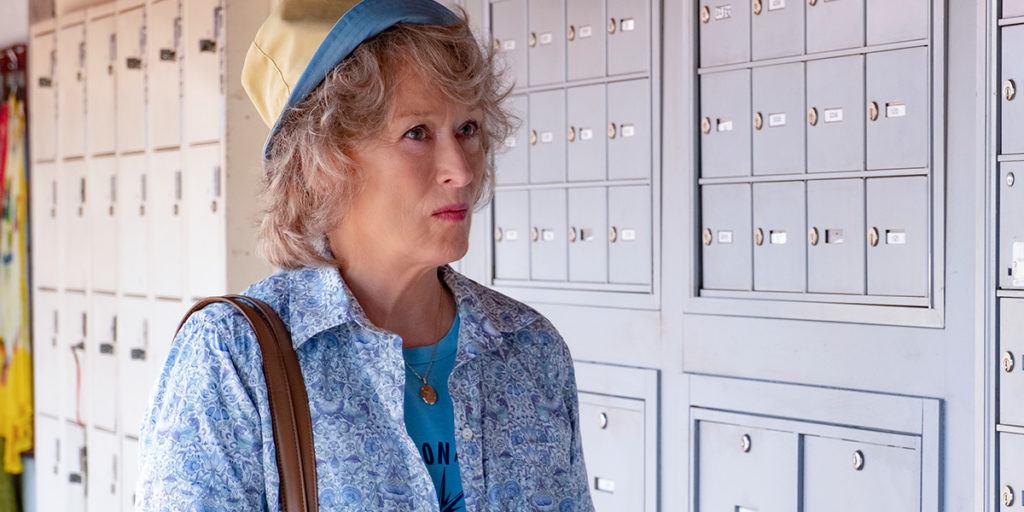The Laundromat

Meryl Streep stars in Steven Soderbergh's THE LAUNDROMAT. (Photo: Netflix)
It has nothing to do with washing clothes, but The Laundromat definitely concerns ordinary people being taken to the cleaners.
The latest ensemble drama from Oscar-winning director Steven Soderbergh is loosely extracted from the Panama Papers, the massive 2016 data leak that revealed decades of fraudulence and corruption in the worldwide banking and insurance industries.
The Laundromat is a sharp-tongued satirical examination of how working-class folks get the shaft in a modern economic system controlled by corporate greed and enabled by legal loopholes — a maze of shell companies, tax shelters, and offshore accounts that abet the 1 percent, with politicians and the authorities either unable or unwilling to help.
Although it sufficiently gets the blood boiling, this agitprop cautionary tale too often feels like a condescending lecture instead of a compelling and persuasive expose.
The structure features overlapping stories of victims linked together via direct-address narration from smug financiers Mossack (Gary Oldman) and Fonseca (Antonio Banderas), who were among the real-life perpetrators receiving a slap on the wrist for their involvement in the schemes.
The most prominent tale involves Ellen (Meryl Streep), who endures the runaround while trying to collect insurance payments after her husband (James Cromwell) drowned in a boating accident, prompting her to track down an account manager (Jeffrey Wright) to a small Caribbean island using her own limited resources.
Another segment involves an affluent California businessman (Nonso Anozie) who can ensure silence for his adulterous ways simply by gifting a company or two — even to his own wife and daughter. Others take place in Mexico and China, with unfortunate outcomes for those caught in the middle.
The meandering screenplay by frequent Soderbergh collaborator Scott Burns (Side Effects), which was adapted from a book by investigative journalist Jake Bernstein, emphasizes the absurd nature of such shady dealings yet frequently falls flat despite a first-rate cast.
Soderbergh has always been adept at weaving together disparate narratives, but here the approach feels disjointed and the impact remains emotionally detached. We feel Ellen’s frustration, although hers is hardly a revelatory lesson in the intricacies of personal finance.
Meanwhile, the film’s relentless cynicism leaves little room for hope amid the outrage, especially during a heavy-handed finale that at least provides incentive to clean up your debts and save cash under the mattress.
Rated R, 96 minutes.